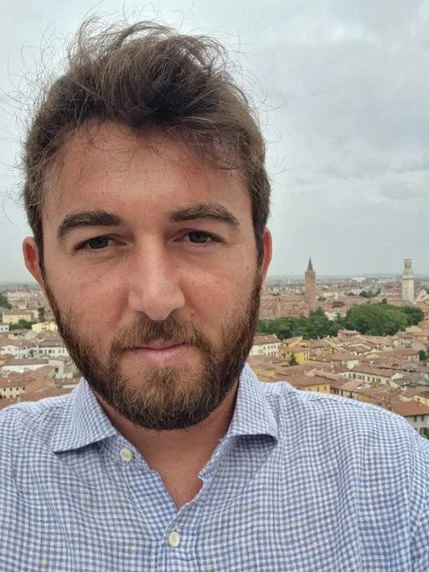Marjus Ceveli
Pronouns: He/Him
Organisations: Sustainable Cooperation for Peace and Security (SCPS); United Network of Young Peacebuilders; Civil Society Platform for Peacebuilding and Statebuilding
Countries of origin: Italy, Albania
Profile
Marjus Ceveli is an Italian and Albanian civil society activist, youth- and women’s-rights advocate. He is also co-founder and president of Sustainable Cooperation for Peace and Security (SCPS). SCPS is an NGO which focuses on human rights advocacy at local, national and international levels through conferences, projects and campaigns, amplifying the demands of underrepresented social groups. He also represents Europe as an elected member of the United Network of Young Peacebuilders International Steering Group and is the focal point for Italy at the Civil Society Platform for Peacebuilding and Statebuilding. Marjus has a background in law and was a peacebuilder for several projects in the Western Balkans. His current mission is to facilitate the entrance of young people in the world of peacebuilding and to advocate for youth and women’s rights within multiple European and international networks.
Story
Marjus Ceveli said he is not sure where his passion for human rights comes from. It might have been influenced by his immigrant family background, the films he loves or some unknown inspiration. However, one thing remains clear – this passion has been a constant presence since childhood, and he shows no inclination to stop pursuing the journey any time soon.
Marjus is an activist, peacebuilder and human rights advocate, as well as the president of SCPS, through which he amplifies the voices of youth and women within various European and international networks. But it was not always like this. Marjus said that he started as a simple volunteer during his time as a law student in Bologna, Italy, where he studied to become a human rights lawyer. It was in this context that he began noticing the often-unacknowledged differences in rights that exist among people from different regions. He quickly realised his calling was to be a human rights activist and so he became an activist for Amnesty International Bologna Student Association. He then spent a few years in Albania and Serbia, working on various peacebuilding projects with various NGOs and think tanks.
Marjus co-founded SCPS with the aim of contributing first-hand to a field that makes direct impact. To complement the humanitarian work that takes the spotlight for most similar NGOs, he geared SCPS towards a focus on high-level advocacy. He said he believes that using the expertise of his team – one of an intercultural character consisting of youth from different backgrounds – can help reach out and shape policies in a professional capacity. He said they push for youth involvement in a dual effort to both strengthen their ability to join the discussion and put them on the same level. Marjus said, ‘We build the bridge between them [high-level policymakers] and young people.’ The next goal for SCPS is sustainability. Despite a lack of funding, Marjus said, they are writing project proposals to receive grants and become operative full-time. Their status as an independent NGO grants them the freedom to pursue their goals without the constraints of external expectations. He said that becoming sustainable takes a long time, for youth- and expert-led organisations alike.
Looking back, his journey was not always smooth sailing. Marjus said there have been hints of pessimism during conversations with older activists about the usefulness of their jobs and their ability to bring about change. He has himself struggled with scaling up the organisation, working with others and most importantly, being heard by policymakers. Having come this far, he said he urges other young people not to lose hope, that such moments will pass and that the majority of people in the field are supportive. His message to youth is that human rights activism is worth pursuing if one is truly passionate. He also encourages an active approach to human rights through professional advocacy, rather than volunteering. He said, ‘We need more civil society activists to keep the world more civil.’


